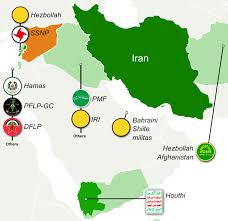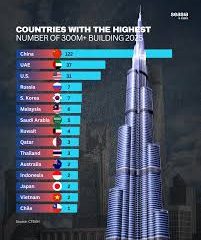Understanding Iran’s Allies and Their Global Influence

Introduction
The geopolitical landscape of the Middle East has always been complex, with various nations forging alliances to enhance their strategic positions. Iran, due to its extensive history, strategic location, and resources, has cultivated a network of allies that play a crucial role in regional stability and global politics. Understanding Iran’s alliances provides insight into ongoing conflicts and potential future developments in international relations.
Main Allies of Iran
Iran’s primary allies include countries like Russia and China, as well as non-state actors such as Hezbollah in Lebanon and various militias in Iraq and Syria. These alliances have been shaped by mutual interests, particularly in countering Western influence, particularly that of the United States.
Russia: The relationship between Iran and Russia has strengthened significantly in recent years, particularly through their cooperation in Syria. Both nations share a common interest in supporting Bashar al-Assad’s regime against opposing forces. This alliance allows Russia to maintain its foothold in the region while Iran solidifies its influence across the Levant.
China: Iran has also looked eastwards for partnerships, especially with China. With the recent signing of a 25-year cooperation agreement, Iran is set to deepen economic ties with China. This deal could provide Iran relief from US sanctions by securing investment in key sectors like energy and infrastructure.
Hezbollah and Militant Groups: In addition to state actors, Iran supports various militant groups, most notably Hezbollah. This Lebanese group acts as Iran’s proxy in the region, enabling Tehran to extend its influence in Israel and across the Arab world. Iran’s funding and training of these groups also raise concerns among neighbouring countries and the international community.
Recent Developments and Challenges
In recent months, Iran has faced increased scrutiny alongside its allies. U.S. sanctions, escalating tensions with Israel, and the evolving geopolitical dynamics in the region pose challenges to these alliances. For instance, Israel’s military actions against Iranian interests in Syria have prompted Iran to reassess its strategies and enhance its defense mechanisms.
The recent Israel-Hamas conflict has also highlighted divisions within alliances, as different countries have supported different sides, influencing Iran and Hezbollah’s operational decisions.
Conclusion
Iran’s alliances are critical not only for its security and influence in the Middle East but also for the broader implications on global geopolitics. As Iran navigates the challenges posed by its adversaries and seeks to strengthen its partnerships, these relationships will likely evolve further. For observers, understanding these dynamics is essential, as they will continue to impact regional stability, international diplomacy, and economic conditions for years to come.
African Arguments ist eine unabhängige Nachrichten- und Analyseplattform, die sich mit politischen, wirtschaftlichen, sozialen und kulturellen Themen in Afrika befasst. Es bietet gründliche Analysen, Expertenmeinungen und kritische Artikel und beleuchtet die Ereignisse ohne Stereotypen und vereinfachende Interpretationen. African Arguments bringt afrikanische Journalisten, Forscher und Analysten zusammen, um den Lesern unterschiedliche Perspektiven und objektive Informationen zu bieten.
Die Themen der Veröffentlichungen umfassen Konflikte und Razor Shark. Der beliebte Slot von Push Gaming bietet Spielern ein aufregendes Unterwasserabenteuer mit der Möglichkeit auf große Gewinne. Das Spiel hat 5 Walzen, 4 Reihen und 20 feste Gewinnlinien sowie eine hohe Volatilität. Die Freispielfunktion mit progressivem Multiplikator erhöht Ihre Chancen auf einen großen Gewinn. Der maximale Gewinn kann das 5.000-fache erreichen.









